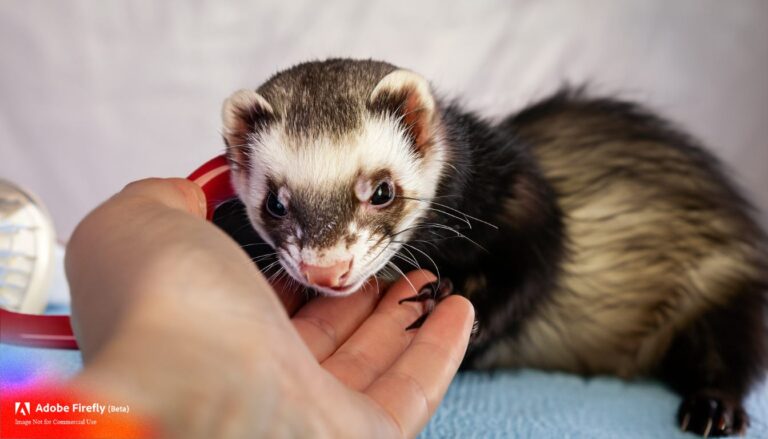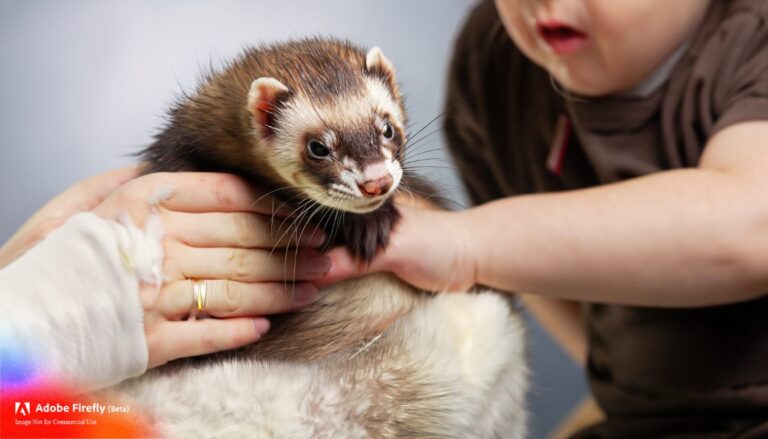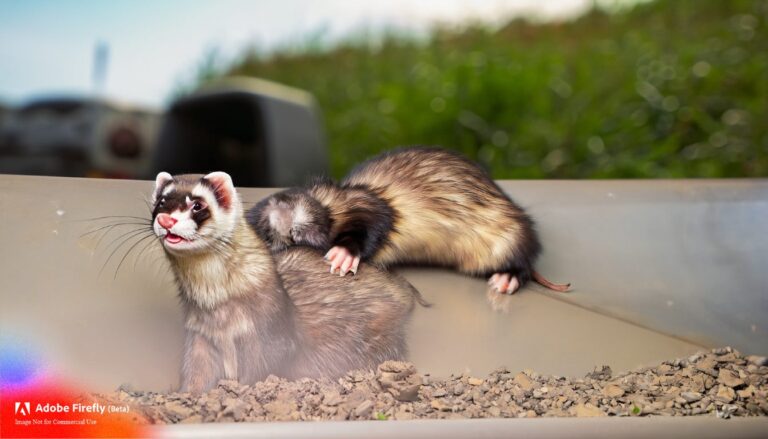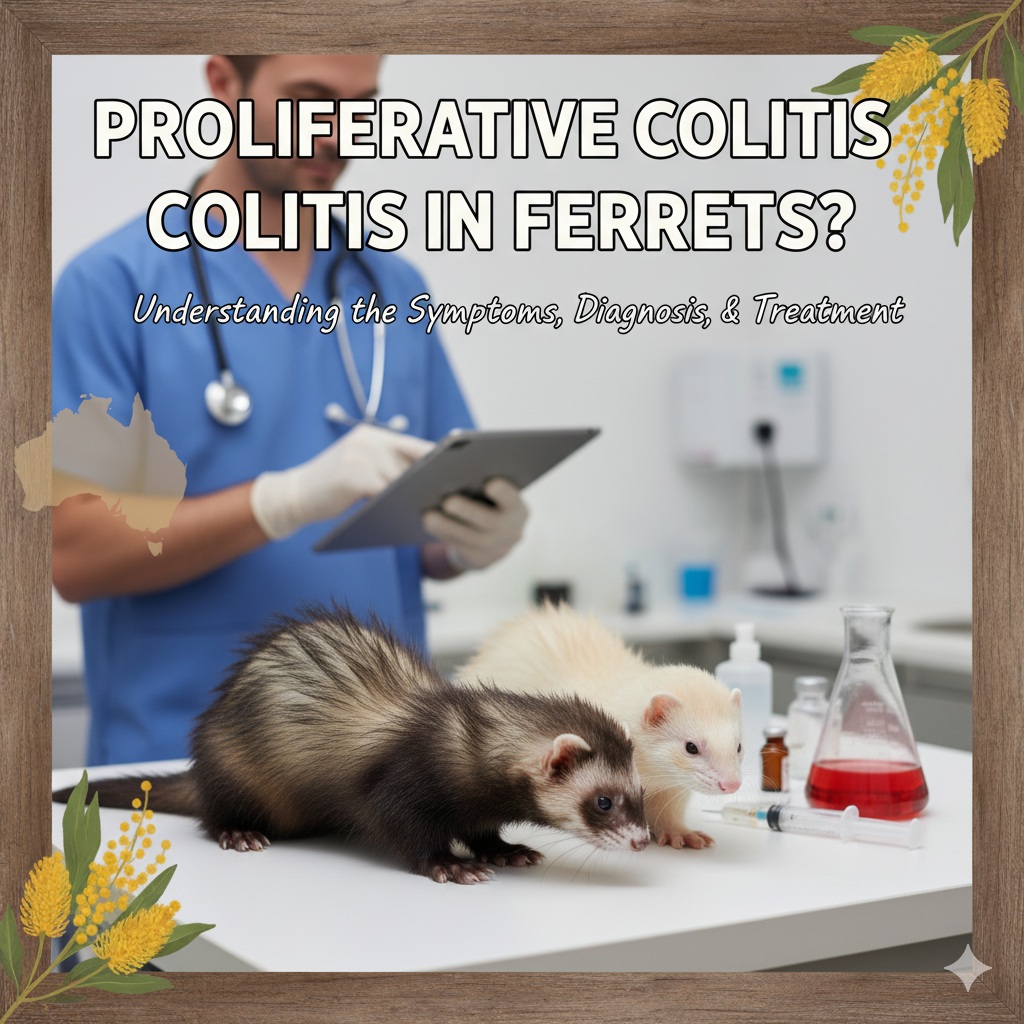
I have noticed several searches lately for “Proliferative Colitis.” It’s a bowel disease or disorder in ferrets.
I will admit that I never came across the term “Proliferative Colitis” until recently. I couldn’t even find it in my ferret “Bible,” Ferrets for Dummies by Kim Schilling. Of course, it may be in there, and I just haven’t found it yet – but I don’t think so. And I am very surprised at this because she covers almost everything else.
So, after doing some research online, here’s what I found out . . .
What is Proliferative Colitis?
Proliferative Colitis is caused by the bacterium Lawsonia intracellularis. This organism causes the lining of the ferret’s large intestine or of the last part of the small intestine to thicken (quite a bit in some cases). And this thickening of the intestinal lining then interferes with water and nutrient absorption.
“Proliferative colitis is a bacterial infection that causes dark stools with clear or green mucus. Your ferret may strain to poop, which can result in a prolapsed rectum. Without treatment, your ferret may become very lethargic because it will be unable to absorb nutrients from its food.”
Some of the most common symptoms are:
- Weight loss
- Decreased appetite
- Pronounced lethargy
- Lack of interest in play and other typical ferret activities
- Difficulty/straining when pooping
- Moaning or crying when pooping
- Dark-colored stools (often containing noticeable amounts of green or clear mucous)
Proliferative Colitis is also known “Fading Ferret Disease” and is usually found in male ferrets under one year old. This is also sort of a catch-all term for a group of bowel-related ferret ailments. Also, the symptoms listed above could also be from other bowel diseases. To be on the safe side, then, if your little woozle shows any of these symptoms, get him or her to the vet.
Proliferative Colitis in Ferrets: Causes, Diagnosis, Tips
Proliferative colitis, also known as proliferative bowel disease (PBD), is a condition that can affect ferrets, causing inflammation and thickening of the colon lining. If you suspect your ferret may be suffering from this condition, it’s essential to seek veterinary care promptly. Here’s what you need to know about proliferative colitis in ferrets:
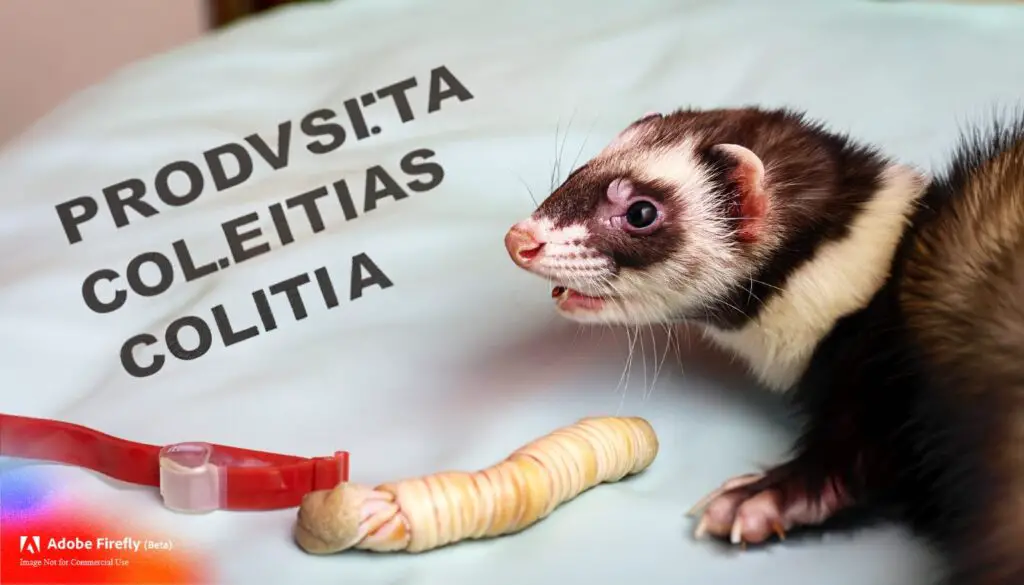
Symptoms:
- Diarrhea: Chronic or intermittent diarrhea is a common sign of proliferative colitis in ferrets. The stool may vary in consistency and color.
- Weight Loss: Ferrets with proliferative colitis may experience weight loss due to reduced appetite and nutrient absorption issues.
- Dehydration: Diarrhea can lead to dehydration, which may present as lethargy, dry gums, and sunken eyes.
- Abdominal Pain: Your ferret may show signs of discomfort, such as reluctance to be touched around the abdomen.
- Vomiting: In some cases, ferrets with proliferative colitis may vomit, though it is not as common as diarrhea.
Causes:
The exact cause of proliferative colitis in ferrets is not fully understood. However, it is believed to be associated with an overgrowth of certain bacteria in the gut. Stress and dietary changes may also contribute to the development of this condition.
Diagnosis:
If you observe any of the symptoms mentioned above in your ferret, it’s crucial to visit a veterinarian experienced in exotic pet care. The vet will perform a thorough physical examination and may conduct additional tests, such as:
- Fecal Examination: Analyzing the ferret’s stool can help identify any parasites or abnormal bacteria.
- Blood Tests: Blood work may reveal changes in the ferret’s white blood cell count and other indicators of inflammation.
- X-rays or Ultrasound: These imaging techniques can help the vet assess the condition of the colon and rule out other possible causes.
Treatment:
Treatment for proliferative colitis in ferrets typically involves a combination of medical management and supportive care:
- Medication: Your vet may prescribe antibiotics, anti-inflammatory drugs, and other medications to reduce inflammation and control bacterial overgrowth.
- Fluid Therapy: If your ferret is dehydrated, intravenous or subcutaneous fluid therapy may be necessary to rehydrate them.
- Dietary Changes: Switching to a easily digestible, low-residue diet may help alleviate symptoms and aid in the recovery process.
- Stress Reduction: Minimizing stress and providing a comfortable environment for your ferret can support their healing.
Tips for Care:
- Follow Veterinary Recommendations: Adhere to your vet’s instructions regarding medication administration, dietary changes, and follow-up appointments.
- Hydration: Encourage your ferret to drink water regularly to prevent dehydration.
- Monitor Stool: Keep an eye on your ferret’s stool and report any changes to your veterinarian.
- Clean Environment: Maintain a clean living space for your ferret to minimize exposure to harmful bacteria.
- Limit Stress: Provide a safe and stress-free environment, avoiding sudden changes in routine or introduction of new pets.
Partying Words
Remember, early detection and intervention play a significant role in the successful treatment of proliferative colitis in ferrets. Regular veterinary check-ups and a well-balanced diet are essential for your ferret’s overall health and well-being.
As a ferret parent, I do not take chances with my fuzzy kids. As Kim Schilling has said, “If something is wrong with your little fuzzbutt, it is usually serious.”

